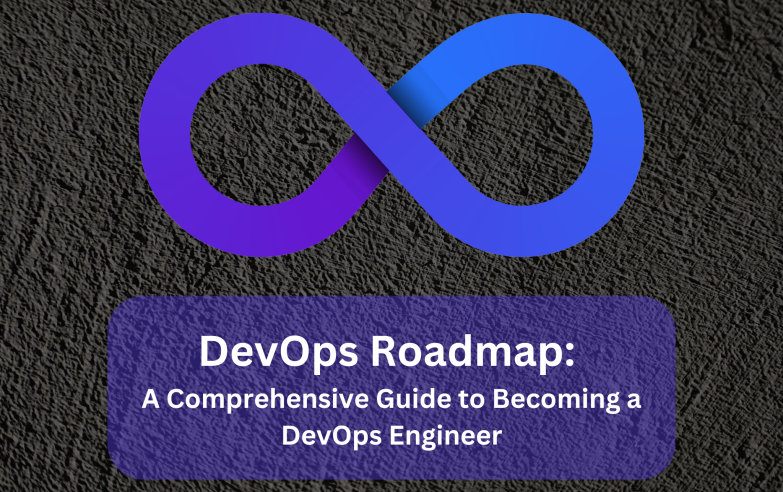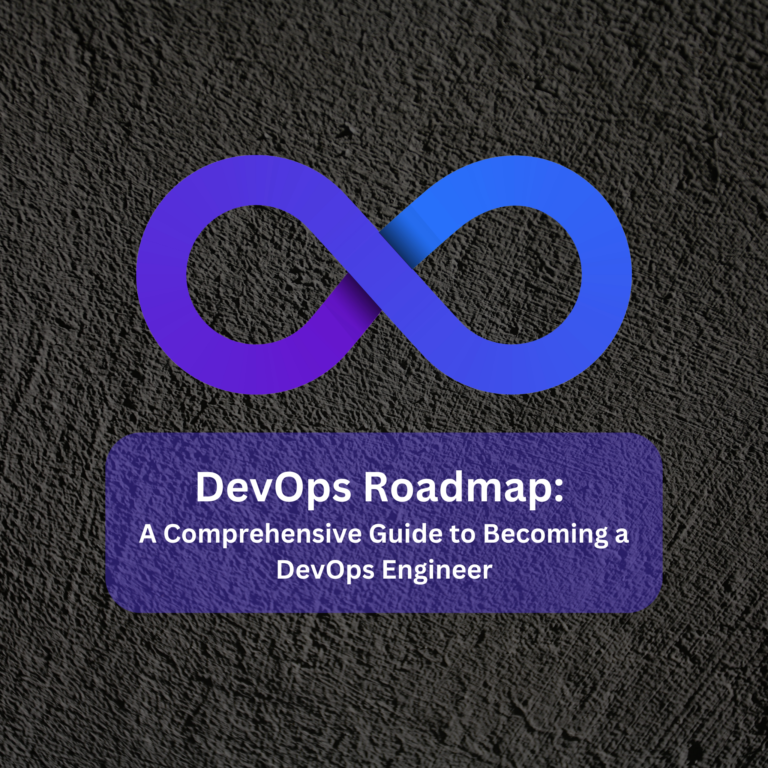

The rise of DevOps has transformed the software development and IT operations landscape, making it a crucial field for tech professionals. If you’re aspiring to become a DevOps engineer, having a well-defined roadmap is essential. This guide will walk you through the key milestones in your journey, providing you with the necessary knowledge and skills to succeed.
Get Your Basics Right
Mastering a Programming Language
The first step in your DevOps journey is to build a strong foundation in programming. While DevOps involves a wide range of tools and practices, understanding how to code is fundamental. Below are some popular programming languages you should consider:
Python: Python is one of the most popular languages in the DevOps community due to its simplicity, readability, and vast library support. It’s widely used for scripting, automation, and data analysis tasks.
C++: Though not as common in DevOps, C++ provides a deep understanding of system-level programming. It’s particularly useful for developing performance-critical applications.
Java: Java is another essential language, especially for building large-scale enterprise applications. It’s platform-independent, making it ideal for various environments.
R: While R is primarily used for statistical computing and graphics, it can be useful in DevOps for data-driven decision-making and automating data analysis tasks.
PHP: PHP is widely used for web development. Understanding PHP can be beneficial when managing the backend of web applications, especially in a LAMP (Linux, Apache, MySQL, PHP) stack.
Why You Should Master One Language
While it’s beneficial to have a working knowledge of multiple languages, mastering one language deeply will give you the confidence and skill to tackle more complex problems. For instance, mastering Python can significantly improve your scripting and automation capabilities, which are crucial in a DevOps role. Once you’re comfortable with one language, learning others becomes easier, enabling you to adapt to different projects and technologies.
Networking Fundamentals
Understanding the Network Basics
In DevOps, you will often be working with distributed systems, cloud platforms, and various network configurations. Hence, a strong understanding of networking fundamentals is essential. Here are some key concepts:
Subnetting: Subnetting involves dividing a network into smaller, more manageable sub-networks. Understanding subnetting is crucial for optimizing network performance and ensuring efficient IP address allocation.
Network Topologies: Network topology refers to the arrangement of different elements (links, nodes, etc.) in a computer network. Familiarity with topologies like star, mesh, and ring can help you design resilient and scalable networks.
Internet Protocols: Protocols like TCP/IP, HTTP/HTTPS, FTP, and DNS are the backbone of network communication. Understanding these protocols is vital for configuring and troubleshooting networks.
Routing Algorithms: Routing algorithms determine the best path for data to travel across a network. Knowledge of routing protocols such as OSPF, BGP, and RIP can help you optimize network performance and reliability.
The Importance of Networking in DevOps
Networking is a critical component of any infrastructure. As a DevOps engineer, you will be responsible for configuring, monitoring, and securing networks that support the deployment and operation of applications. By mastering networking fundamentals, you can ensure that your systems are both efficient and secure.
Linux Concepts
Why Linux?
Linux is the backbone of most modern DevOps environments. Whether you’re deploying applications on cloud platforms or managing servers, you will likely be working with Linux. Here are some essential Linux concepts you should master:
I/O Management: Understanding how Linux handles input and output is crucial for optimizing system performance. This includes knowledge of file systems, disk management, and I/O scheduling.
Terminal Commands: The Linux terminal is a powerful tool for managing servers, automating tasks, and troubleshooting issues. Mastering commands like
grep,awk,sed, andcronwill make you more efficient in your daily tasks.Memory Management: Linux uses a sophisticated memory management system that includes concepts like virtual memory, paging, and swapping. Understanding these concepts is essential for optimizing system performance and preventing memory-related issues.
Process & Thread Concepts: Processes and threads are fundamental units of execution in Linux. Understanding how to manage processes, schedule tasks, and optimize resource usage is crucial for maintaining system stability.
The Role of Linux in DevOps
Linux is ubiquitous in the world of DevOps. Most CI/CD tools, containerization platforms like Docker, and orchestration tools like Kubernetes run on Linux. By mastering Linux, you can streamline your development and deployment processes, ensuring that your applications run smoothly in production.
Understanding CI/CD Pipeline
What is CI/CD?
Continuous Integration (CI) and Continuous Deployment (CD) are fundamental practices in DevOps. CI involves the automatic integration of code changes into a shared repository, while CD automates the deployment of code to production environments. Here’s what you need to know:
CI/CD Tools: Tools like Jenkins, GitLab CI, CircleCI, and Travis CI are widely used for implementing CI/CD pipelines. These tools help automate the process of building, testing, and deploying code, reducing manual effort and minimizing the risk of human error.
Pipeline Stages: A typical CI/CD pipeline includes stages like source code management, build, test, and deploy. Understanding how to design and manage these stages is crucial for ensuring smooth and efficient software delivery.
Automation: Automation is at the heart of CI/CD. By automating repetitive tasks like code compilation, testing, and deployment, you can accelerate the development process and ensure consistent quality.
Why CI/CD Matters
CI/CD pipelines are essential for maintaining a fast-paced development cycle. They enable teams to deliver new features, bug fixes, and updates to production quickly and reliably. By mastering CI/CD practices, you can help your team achieve shorter release cycles, higher-quality software, and faster feedback loops.
Familiarity with Cloud Platforms
The Importance of Cloud Platforms
Cloud computing has revolutionized the way applications are developed, deployed, and managed. As a DevOps engineer, you must be familiar with leading cloud platforms to optimize scalability, reliability, and automation. Here are the top platforms you should consider:
Amazon Web Services (AWS): AWS is the most widely used cloud platform, offering a vast array of services, including computing power, storage, databases, and machine learning. Familiarity with AWS is essential for managing cloud-based infrastructures and services.
Microsoft Azure: Azure is a close competitor to AWS, with a strong presence in enterprise environments. Azure offers a range of services similar to AWS and integrates seamlessly with Microsoft products like Windows Server and SQL Server.
Google Cloud Platform (GCP): GCP is known for its data analytics and machine learning capabilities. It’s a strong choice for organizations that prioritize data-driven decision-making and AI/ML applications.
Key Concepts to Master
Infrastructure as a Service (IaaS): IaaS provides virtualized computing resources over the internet. Understanding IaaS is crucial for managing virtual machines, storage, and networks in the cloud.
Platform as a Service (PaaS): PaaS provides a platform that allows developers to build, run, and manage applications without worrying about the underlying infrastructure. Familiarity with PaaS can streamline application development and deployment.
Software as a Service (SaaS): SaaS delivers software applications over the internet on a subscription basis. Understanding how SaaS works can help you manage and integrate third-party services into your applications.
Cloud Platforms in DevOps
Cloud platforms are integral to modern DevOps practices. They offer the scalability, flexibility, and automation needed to support continuous delivery and deployment. By mastering cloud platforms, you can ensure that your applications are always available, resilient, and scalable.
Conclusion
The journey to becoming a DevOps engineer is challenging but rewarding. By following this roadmap, you will acquire the knowledge and skills needed to excel in this dynamic field. Start by mastering a programming language, then build a strong foundation in networking, Linux, CI/CD, and cloud platforms. With dedication and continuous learning, you can become a proficient DevOps engineer, capable of driving innovation and efficiency in your organization.
The path may seem daunting at first, but remember that every expert was once a beginner. Take each step one at a time, and you’ll soon find yourself mastering the intricacies of DevOps, contributing to high-performing teams, and playing a key role in the success of your projects.





